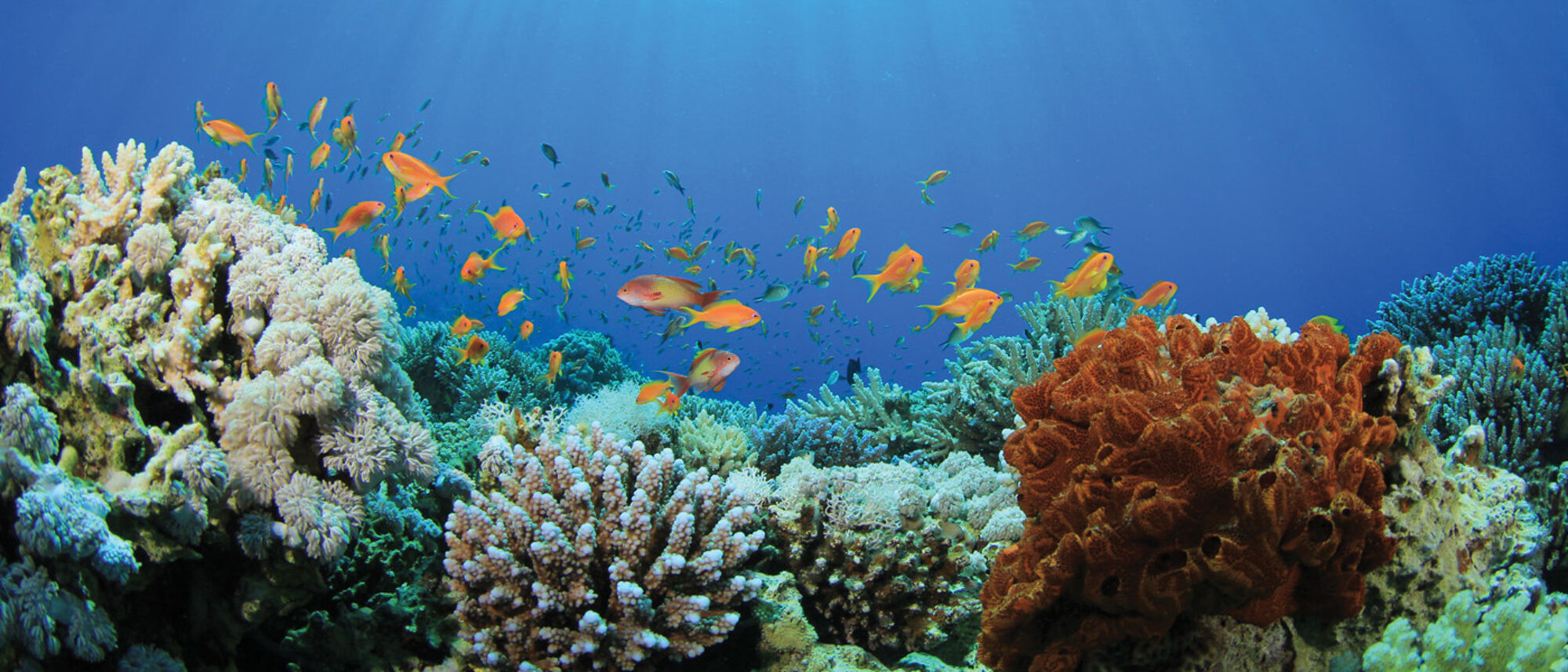
A fight for survival in a warming world
By Jennifer Baird
Coral reefs are one of the most vibrant, inspiring and biodiverse environments in the natural world, but they are in grave danger due to global warming. At Glasgow we are exploring pioneering solutions to combat the damaging phenomenon of coral bleaching and help regenerate lost reefs.
“Corals are reaching a point at which they can no longer put up with the stress that we’re inflicting on them,” says Dr Nick Kamenos, Reader in Global Change in the School of Geographical & Earth Sciences. He is examining coral bleaching events, where corals react to warming seas by becoming stressed, losing their bright colours and turning pale. This could lead to the death of vast areas of reef and have drastic repercussions on the planet such as loss of ocean biodiversity, loss of land and homes due to coastal erosion, increased poverty and even political instability.
Around 500 million people depend on these beautiful ecosystems for food, livelihood and coastal protection, and they are worth £60 billion each year to the global economy.
Assessing the damage
Nick has created coral bleaching records that stretch back to the 1700s. Why is this so vital? “It’s important to have historical records so that we can see, relative to the past, how rapidly the environment is changing at the moment,” he says. His research is allowing a deeper understanding of how sensitive corals are to bleaching, and has found that while corals may have survived bleaching events in the past, they are now struggling to cope and the stress placed on them makes them less resilient in the future.
Nick’s pioneering work has made it possible to work out whether certain corals, so-called 'super-corals', will be able to survive in warming waters by adapting, and to help them proliferate through a process of transplantation. “Large-scale industrial measures could also be taken,” he says, “such as building machines that can extract carbon dioxide. But there are also natural systems that absorb it too, such as forests (on land), and seagrass (under water).”
Half of the world’s corals are under threat as never before, and solving the issue requires the wider input and willingness of governments on a global scale. “But really,” Nick says, “to stop coral bleaching, we need to stop heating the planet. If we can do this, I think there is hope.”
This article was first published September 2020.

Innovative solutions
One of our postgraduate students, Jenny Mallon, is working towards a PhD in biogeochemistry that focuses on coral reef metabolism. Leading a reef restoration project in the Caribbean, she collects coral spawn at night in a process that is determined by the timing of the full moon. These coral 'babies' are then grown in protected conditions and transplanted onto the reefs in the hope they will flourish and regenerate.
Jenny has now trained 30 local people in doing this. “Successful conservation relies upon the involvement and support of local communities,” she says, “so I love to get young people immersed in reef science, doing something practical that they can see is making a difference.”
Climate change: leading from the front
Principal Professor Sir Anton Muscatelli says that UofG must take the lead on this crucial issue.
Our new centre aims to be part of the solution
Our new Centre for Sustainable Solutions is ready to rise to the climate challenge.
UofG and the United Nations' SDGs
How we are aligning our research with the United Nations' 17 Sustainable Development Goals.

